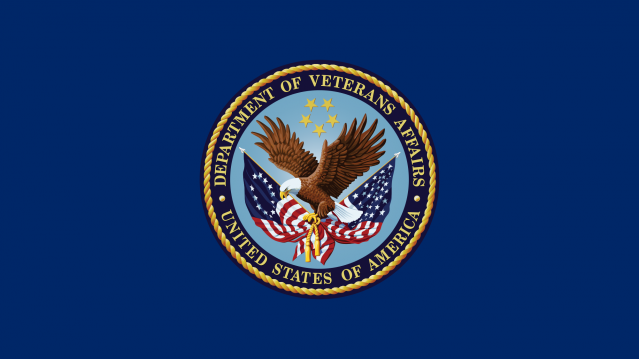VA Cited for Neglecting Follow-Up Treatment for Depressed Vets

The embattled Veterans Affairs Department is once again under scrutiny for potentially violating agency guidelines when treating patients—this time, failing to ensure that veterans with depression are receiving sufficient follow-up care after being prescribed anti-depressant medication.
That’s the conclusion of an investigation by the Government Accountability Office. The GAO reviewed patients being treated for depression at six separate VA medical centers and found that after the veterans received anti-depressants, their doctors did not conduct follow-up appointments within four to six weeks, as the VA requires
Related: VA Wastes Millions, But Still Wants More as Vets Wait for Care
In its review, the GAO said that among all patients whose records were reviewed—almost none of them received check ups with doctors in the required time after they were given anti-depressant medication.
"Given the debilitating effect that depression can have on veterans' quality of life, VA's monitoring of veterans with [depression] is critical to ensuring they receive care that is associated with positive health care outcomes," GAO director of health care Randall Williamson said in congressional testimony this week. He went on to criticize the VA for not following its own guidelines to assure veterans receive sufficient treatment.
“This work illustrates, once again, a continuing pattern of VHA's [Veterans Health Administration] noncompliance with its own policies and established procedures,” Randall Williamson, the GAO's director of health care said in congressional testimony last week.
Separately, the GAP flagged the VA’s Behavioral Health Autopsy Program which is used to collect data on veterans that have committed suicide in order to inform policy decisions, saying it is plagued with inaccuracies.
Auditors said that the system had incorrect dates of death—sometimes off by one day, sometimes off by a whole year. The GAO said this made it nearly impossible to assess what kind of treatment they were provided.
4.2 Million Uninsured People Could Get Free Obamacare Plans

About 4.2 million uninsured people could sign up for a bronze-level Obamacare health plan and pay nothing for it after tax credits are applied, the Kaiser Family Foundation said Tuesday. That means that 27 percent of the country’s 15.9 million uninsured people could get covered for free. The chart below breaks down the eligible population by state.
Takedown of the Day: Ezra Klein on Paul Ryan's Legacy of Debt

Vox’s Ezra Klein says that retiring House Speaker Paul Ryan’s legacy can be summed up in one number: $343 billion. “That’s the increase between the deficit for fiscal year 2015 and fiscal year 2018— that is, the difference between the fiscal year before Ryan became speaker of the House and the fiscal year in which he retired.”
Klein writes that Ryan’s choices while in office — especially the 2017 tax cuts and the $1.3 trillion spending bill he helped pass and the expansion of the earned income tax credit he talked up but never acted on — should be what define his legacy:
“[N]ow, as Ryan prepares to leave Congress, it is clear that his critics were correct and a credulous Washington press corps — including me — that took him at his word was wrong. In the trillions of long-term debt he racked up as speaker, in the anti-poverty proposals he promised but never passed, and in the many lies he told to sell unpopular policies, Ryan proved as much a practitioner of post-truth politics as Donald Trump. …
“Ultimately, Ryan put himself forward as a test of a simple, but important, proposition: Is fiscal responsibility something Republicans believe in or something they simply weaponize against Democrats to win back power so they can pass tax cuts and defense spending? Over the past three years, he provided a clear answer. That is his legacy, and it will haunt his successors.”
Number of the Day: $300 Million

Mick Mulvaney, the acting director of the Consumer Financial Protection Bureau, wants the agency to be known as the Bureau of Consumer Financial Protection, the name under which it was established by Title X of the 2010 Dodd-Frank Wall Street reform law. Mulvaney even had new signage put up in the lobby of the bureau. But the rebranding could cost the banks and other financial businesses regulated by the bureau more than $300 million, according to an internal agency analysis reported by The Hill’s Sylvan Lane. The costs would arise from having to update internal databases, regulatory filings and disclosure forms with the new name. The rebranding would cost the agency itself between $9 million and $19 million, the analysis estimated. Lane adds that it’s not clear whether Kathy Kraninger, President Trump’s nominee to serve as the bureau’s full-time director, would follow through on Mulvaney’s name change once she is confirmed by the Senate.
Why Trump's Tariffs Are Just a Drop in the Bucket

President Trump said this week that tariff increases by his administration are producing "billions of dollars" in revenues, thereby improving the country’s fiscal situation. But CNBC’s John Schoen points out that while tariff revenues are indeed higher by several billion dollars this year, the total revenue is a drop in the bucket compared to the sheer size of government outlays and receipts – and the growing annual deficit.
Bank Profits Hit New Record Thanks to 2017 Tax Law

Bank profits reached a record $62 billion in the third quarter, up $14 billion, or 29.3 percent, from the same period last year, according to data from the Federal Deposit Insurance Corporation. The FDIC said that about half of the increase in net income was attributable to last year’s tax cuts. The FDIC estimated that, with the effective tax rates from before the new law, bank profits for the quarter would have risen by about 14 percent, to $54.6 billion.



